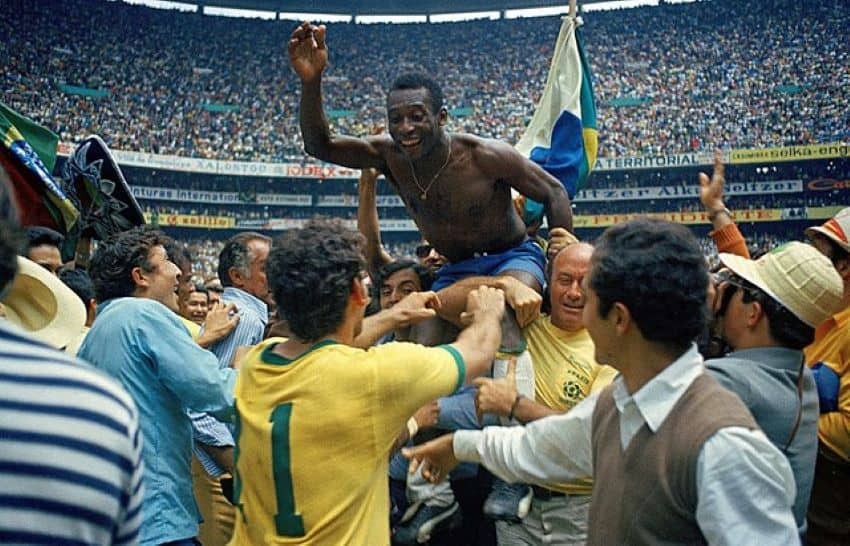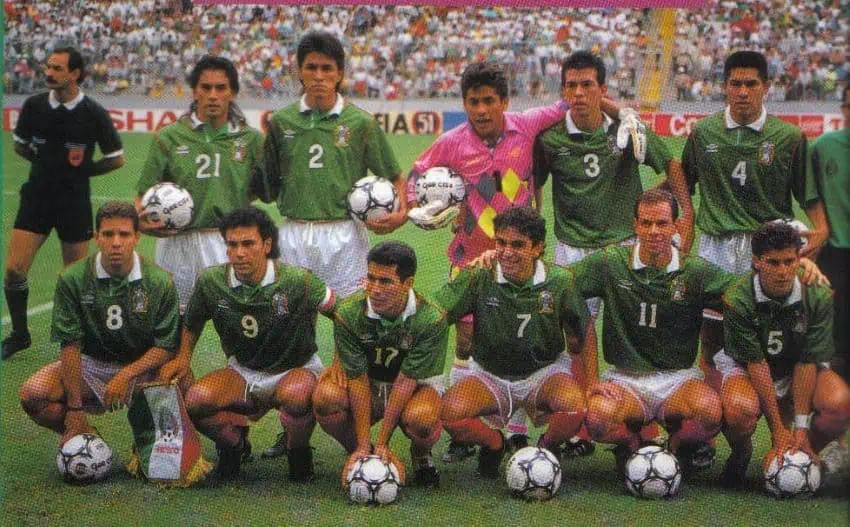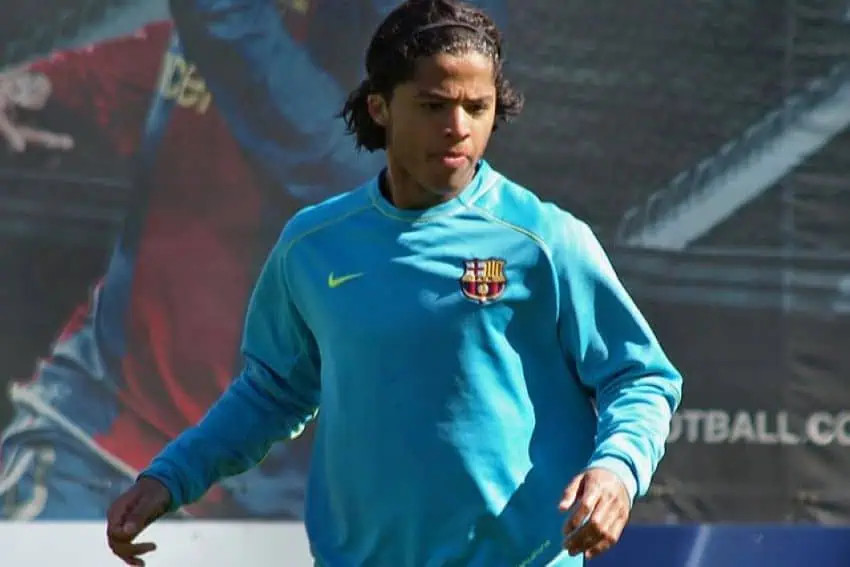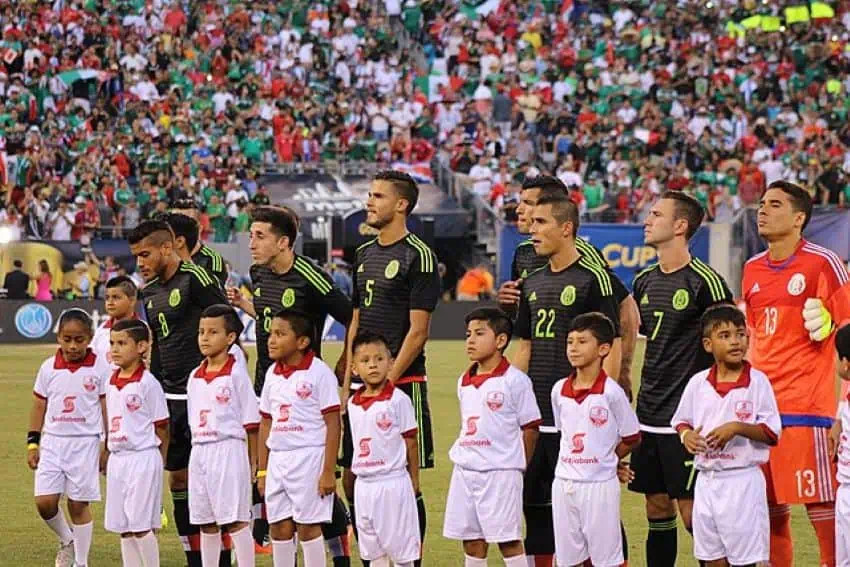In Mexico, fútbol isn’t just a game; it’s woven into the nation’s identity. When El Tri, the national team, competes in a major tournament, the country unites, pausing daily life to cheer them on. Mexico’s global football recognition solidified after hosting the 1970 World Cup, marking their first quarter-final appearance and introducing the world to color television broadcasting of the beautiful game. This tournament, famously won by Pelé’s Brazil at the iconic Azteca Stadium, etched Mexico’s name into football history. Mexico further cemented its status by hosting the 1986 World Cup, remembered for Maradona’s controversial “Hand of God” goal, and another quarter-final appearance for the home nation. This established reputation opened doors to prestigious tournaments like South America’s Copa América. Despite an eight-year absence, a strong showing at the upcoming Copa América could be the perfect springboard for El Tri as they approach the 2026 World Cup, co-hosted by Mexico.
 Pele wins the World Cup in 1970
Pele wins the World Cup in 1970
Pelé’s World Cup Victory in Mexico, 1970: A defining moment for both Brazilian football and Mexico’s growing stature as a host nation in global soccer.
Mexico’s Copa América Journey: A History of Upsets and Near Misses
Since 1993, Mexico has been a regular invitee to Copa América, consistently clashing with football giants and showcasing their talent against legends like Lionel Messi, Neymar, Ronaldinho, and Diego Forlán. Far from being overwhelmed, Mexico has often risen to the occasion. Their debut in the 1993 Copa América saw them remarkably reach the final against Argentina, a feat they repeated in 2001. Furthermore, El Tri secured third-place finishes in 1997, 1999, and 2007, demonstrating sustained competitiveness in the tournament.
The late 1990s and early 2000s are considered a golden era for Mexican football. Fueled by iconic players such as Luis Hernández, Cuauhtémoc Blanco, Hugo Sánchez, and Rafa Marquez, Mexico’s encounters with South American powerhouses like Argentina, Brazil, and Uruguay significantly boosted their international standing. Prior to their 1993 Copa América participation, FIFA ranked Mexico 25th globally. By May 2006, riding the wave of Copa América successes and strong performances, Mexico ascended to an impressive 4th place in the FIFA rankings, even surpassing European powerhouses like Italy, France, and Germany. This period highlighted the positive impact Copa América had on Mexican football’s global perception and development.
 Mexico
Mexico
Mexico’s Copa America Final Squad, 1993: A team that marked Mexico’s debut in the tournament with an impressive run to the final, setting the stage for future successes.
The “Golden Generation” and the Copa América Challenge
Building on the foundations of the 1990s and early 2000s, Mexico entered what many dubbed their “golden generation.” Stars like Carlos Vela, Giovani dos Santos, Javier “Chicharito” Hernández, and Guillermo Ochoa maintained Mexico’s position as a top-tier football nation, consistently ranked among the world’s best. This era brought further accolades, including Gold Cup victories and consistent progress to the World CupRound of 16. A pinnacle moment was their Olympic gold medal win at London 2012. Many players from this generation gained international recognition playing for major European clubs such as Real Madrid, Barcelona, Tottenham Hotspur, Arsenal, and Manchester United.
 Giovanni Dos Santos
Giovanni Dos Santos
Giovani Dos Santos: A prominent figure of Mexico’s “Golden Generation”, who showcased his skills in the Premier League and alongside Lionel Messi at Barcelona, embodying the global reach of Mexican talent.
Despite this wealth of talent, Copa América success beyond the quarter-finals eluded them after 2007. In 2016, determined to break this barrier, Mexico fielded a formidable squad for the Copa América Centenario. Reaching the quarter-finals, they faced a devastating 7-0 defeat against Chile. This result remains Mexico’s heaviest loss in a major tournament, a stark reminder of the unpredictable nature of football and the high stakes of Copa América.
Recent Struggles and Copa América 2024: A Turning Point?
Recent years have seen El Tri face challenges. While a memorable 1-0 victory against reigning World Champions Germany at the 2018 World Cup offered a glimmer of hope, consistent success has been lacking. The rise of the United States and Canada has challenged Mexico’s dominance in the CONCACAF region. A telling statistic is that Mexico hasn’t defeated the United States since 2019, a shift in regional power that would have been unthinkable to Mexican fans a decade prior. Failing to progress beyond the group stage at the 2022 World Cup for the first time since 1986 further underscored these struggles.
However, the horizon isn’t entirely bleak. A new wave of young Mexican talent, including Edson Álvarez, Jorge Sanchez, and Luis Chavez, offers renewed optimism. Rising stars like Santiago Giménez, who scored the winning goal in the 2023 Gold Cup and is making waves at Feyenoord in the Netherlands, are injecting fresh energy into the national team. Rumors of potential transfers to European giants like Tottenham Hotspur and AC Milan for Giménez highlight the potential of this new generation.
 Mexico national soccer team
Mexico national soccer team
The Mexican National Team: Facing a period of transition, El Tri looks to a blend of experienced players and emerging talents to reclaim their position as a dominant force in international football, starting with Copa América 2024.
 Edson Álvarez
Edson Álvarez
Edson Álvarez: Leading the new wave of Mexican footballers making their mark in Europe, Álvarez’s role at West Ham United and within the national team is crucial for Mexico’s aspirations in Copa América and beyond.
The 2024 Copa América presents a significant opportunity for Mexico to revitalize their international standing. Drawn into Group B alongside Ecuador, Venezuela, and Jamaica, Mexico has a favorable path to the quarter-finals. Finishing second in the group could set up a high-stakes quarter-final clash with Lionel Messi’s Argentina. With the tournament commencing in June, Mexico is considered a strong contender to top Group B. Team manager Jimmy Lozano’s squad selection, prioritizing youth by omitting veterans like Hirving Lozano, Raul Jiménez, and Guillermo Ochoa, signals a clear intention to build for the future and provide young players with crucial experience on a major stage. Success in topping Group B would be strategically advantageous, potentially avoiding an early encounter with Argentina. However, with formidable teams like the United States, Brazil, Colombia, and Uruguay also vying for the title, Copa América 2024 promises to be a true test of Mexico’s current capabilities and future potential on the continental stage.
